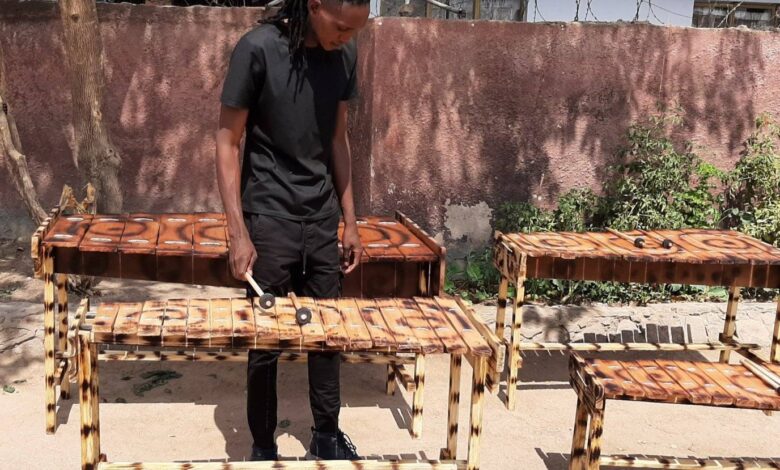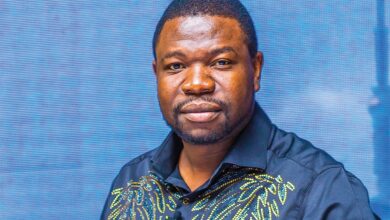Kudzai Dzingwa: Championing African Traditional Instruments Through Innovation and Passion

Kudzai Dzingwa’s musical journey began in Chitungwiza, where he first played the marimba at Tamuka Primary School. His interest in traditional music grew through his involvement with the Children Performing Arts Workshop Organisation, where he honed his skills during weekends and holidays. Over time, he emerged as one of Zimbabwe’s most respected marimba players and teachers, frequently collaborating with schools and fellow musicians.
Driven by a passion for African instruments and a recognition of the gap in their manufacturing and distribution, Dzingwa transitioned into craftsmanship. A holder of a National Certificate in Music from the Zimbabwe College of Music, he established himself as a specialist in creating marimbas, mbiras, and hosho. His designs include innovative foldable marimbas and custom furniture for music spaces.
Among his notable inventions is the electric semi-acoustic marimba, designed for portability and enhanced performance. The instrument includes a built-in pick-up and a mini graphic equaliser for pitch correction. According to Dzingwa, the marimba can project sound effectively across 500 square metres — the average size of an auditorium — without needing a public address system.
Having entered the instrument-making industry in 2010, Dzingwa has since refined his skills, creating portable instruments complete with foldable legs and carrier bags. His innovations were inspired by his own experience performing in bands, where he sought ways to make the marimba as transportable as guitars or keyboards.
In addition to his work as a craftsman, Dzingwa is also a recording artist. He has released a single titled Changu Chijaya and is preparing to launch his debut album, Ndiringeyi. The album includes songs such as Chara Chimwe, Mukaranga Ndidewo, Zvawauya Zvanaka, Mhuka ine Mavara, and the title track Ndiringeyi. The project reflects his personal journey and the challenges he has faced in pursuing a career in the arts.
Dzingwa describes his performance at the Sauti Za Busara Festival in Zanzibar, where he played marimba for Evans Mapfumo’s Kiati Band, as a career highlight. He was inspired by the pride other African musicians displayed in using traditional instruments and resolved to deepen his commitment to promoting indigenous music.
Influenced by legends such as the late Oliver “Tuku” Mtukudzi, Thomas Mapfumo, and Mike Mopo, Dzingwa often studies their music to refine his own artistry. Despite his progress, he continues to face challenges, particularly in meeting the growing demand for instruments. He sources hardwood from Bulawayo and manufactures the marimbas in Chitungwiza, with each set of six taking up to three weeks to complete. He sees significant potential for growth, especially given the demand from over 7,000 schools in the Harare Metropolitan Province alone.
Dzingwa encourages young people to pursue professional qualifications in their chosen fields rather than rushing into adult responsibilities. His story reflects the broader challenges faced by Zimbabwe’s music industry, particularly the limited industrial support for traditional instrument manufacturing. Many retired musicians turn to instrument-making, often requiring years of practice to master the craft.
He recalls his participation in the 2009 Zimbabwe Music Crossroads Competitions with the Tamukira Marimba Band. Although they did not win, he remained determined, using the experience to further improve both his musical and manufacturing skills.
Dzingwa aspires to see his handcrafted instruments reach international markets and to gain wider recognition as a marimba performer. His journey stands as a powerful example of resilience, innovation, and the preservation of African musical heritage.




